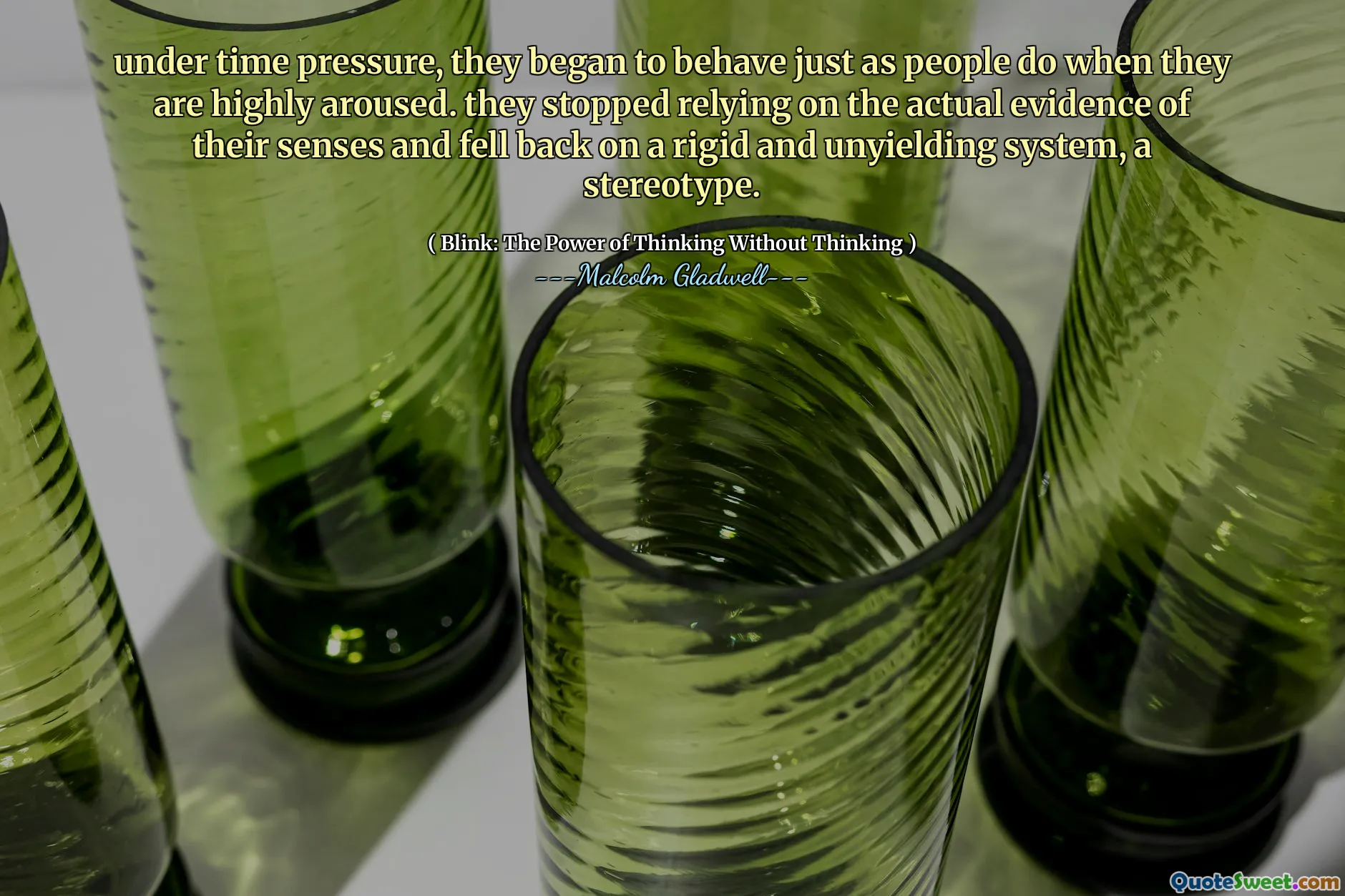
under time pressure, they began to behave just as people do when they are highly aroused. they stopped relying on the actual evidence of their senses and fell back on a rigid and unyielding system, a stereotype.
In "Blink," Malcolm Gladwell discusses how time pressure can influence decision-making processes. When individuals are faced with urgent situations, they often resort to instinctive reactions rather than analyzing information carefully. This response parallels how people behave when they are highly aroused, leading to decisions driven more by preconceived notions than by factual evidence. The passage emphasizes that under stress, individuals may abandon their ability to assess situations based on their senses. Instead, they tend to rely on stereotypes and rigid thought patterns, which can undermine their judgment and lead to less effective outcomes. This highlights the importance of understanding cognitive biases in high-pressure environments.
In "Blink," Malcolm Gladwell discusses how time pressure can influence decision-making processes. When individuals are faced with urgent situations, they often resort to instinctive reactions rather than analyzing information carefully. This response parallels how people behave when they are highly aroused, leading to decisions driven more by preconceived notions than by factual evidence.
The passage emphasizes that under stress, individuals may abandon their ability to assess situations based on their senses. Instead, they tend to rely on stereotypes and rigid thought patterns, which can undermine their judgment and lead to less effective outcomes. This highlights the importance of understanding cognitive biases in high-pressure environments.





